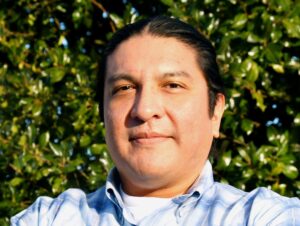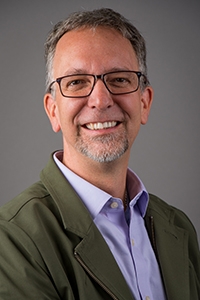Cultural safety is paramount to the work of the Rural Coordination Centre of BC (RCCbc). Recently, our Rural Site Visits project team, which is visiting all 201 RSA communities across British Columbia to develop a deeper understanding of citizens’ experiences with the healthcare system, hosted a four-part Cultural Safety Workshop with Cultural Safety Facilitator, Harley Eagle.

Harley has a profound ability to draw out participants’ collective experiences with racism, and enlightens participants with his stories and gentle approach. He is Dakota and Ojibway, and a member of Whitecap Dakota First Nations, and looks to Indigenous life ways to guide his Cultural Safety teaching.
During the Workshop, participants explored systemic and internalized racism and power dynamics. They also learned how to set a good tone for meetings and skills to address situations of racism.
We sat down with one of the Workshop participants, Dr. Blair Stanley, to find out how this training impacted his perspective on racism and his practice, as a physician. His insights may inspire you to start or continue your anti-racism and cultural safety journey.

Q: What lessons did you learn during the Cultural Safety Workshop that would help you speak up and call others in alongside you?
Dr. Stanley: I learned many valuable lessons from Harley Eagle’s workshop on racism and cultural safety. I have a greater understanding and awareness of my own racism and implicit bias and am inspired to continue that journey of self discovery. I have a much deeper understanding of how colonialism has profoundly impacted the lives of Indigenous people. I have a greater awareness of how pervasive attitudes of seeing and treating Indigenous people as “less than” has led to the Indian Act, Reservation System, and the Residential School System, among other things. These white institutions have eroded the autonomy and core values of a diverse and rich Indigenous culture in Canada. I can also see that, despite suffering genocide and trauma, Indigenous people are resilient, and we have much to learn from their ways of knowing and being.
Q: How did the Cultural Safety Workshop impact your understanding of racism and cultural safety in your life and clinical practice?
Dr. Stanley: I feel more confident in speaking up and advocating for Indigenous people when I witness racism, discrimination, and inequity. Not using my voice makes me complicit in that behaviour. As a physician, I feel more confident in treating Indigenous patients, families, and communities. I see how racism creates culturally unsafe practices, leading to substandard care and poor health outcomes. And I can see that, as an individual, I have the capacity to influence change at many levels.
I have been inspired by sharing a circle with Harley and my colleagues and friends at RCCbc. I have begun reading, My Grandmother’s Hands: Racialized Trauma and the Pathway to Mending Our Hearts and Bodies, by Resmaa Menakem. I have just about completed the San’yas Indigenous Cultural Safety Training. I have introduced Harley to the Executive Director of the Shuswap North Okanagan Division of Family Practice to schedule a workshop for healthcare workers in our region of practice. I am working with the team at Kalamalka Medical Practice to grow a Trauma-Informed Practice. And I have put my name forward to work for the Okanagan Indian Band Medical Clinic. I am committed to listening and learning from Indigenous People and others who experience racism, and learning to create a safe space within myself and my circle of influence to help foster change.
Q: What advice would you give to others who are starting out on their learning journeys?
Dr. Stanley: I started this journey with Harley with the intention of learning more about Indigenous people. And something unexpected and wonderful happened. With Harley’s gentle and intentional facilitation, my learning went inside to a place where I needed to look at my own relationship with racism. My advice to others starting out on this journey would be to bring an open heart. I believe this is a very special journey. It is a journey of walking beside our Indigenous teachers as we travel back into the past to better understand the present. And it is a transformation as we begin to question some of our own values that are embedded in white supremacy culture.
Wherever you are in your cultural safety learning journey, there’s always something new to discover.
Helpful Resources:
Training:
|